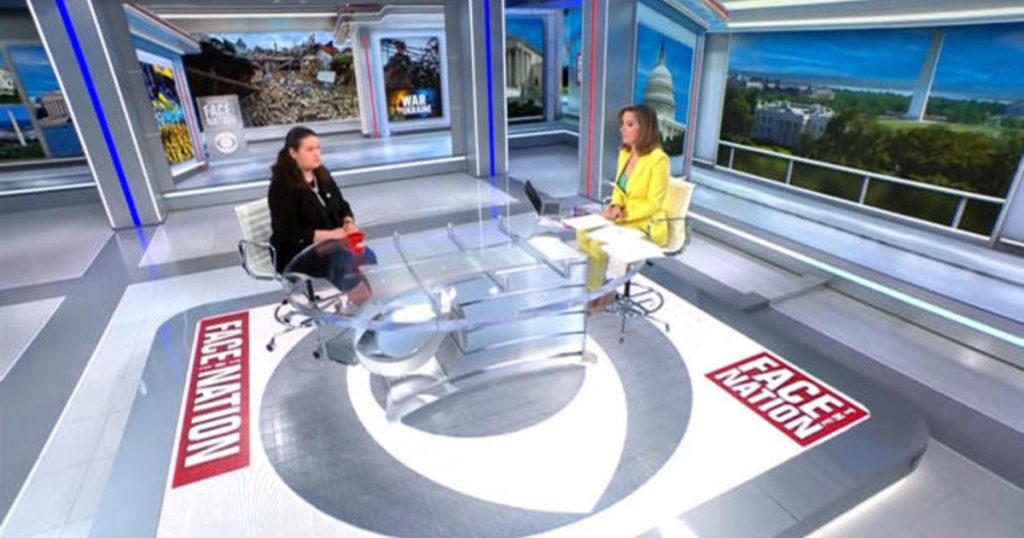On this “Face the Nation” broadcast, moderated by Margaret Brennan, various key individuals were interviewed. They included Sen. J.D. Vance, Sen. Gary Peters, Ukrainian Ambassador to the U.S. Oksana Markarova, cybersecurity expert Chris Krebs, and former Defense Secretary Robert Gates. With the 2024 election approaching, former President Trump and President Biden are actively campaigning. Sen. Vance, a potential running mate for Trump, showed his support at a fundraiser in New York and emphasized the importance of reelecting Trump due to his record of peace and prosperity. Sen. Peters is focused on defending the Democrats’ slim majority and expressed confidence in winning key battleground states. The discussion also touched on threats to elections from foreign interference and the use of AI.
The ongoing war in Ukraine, with Russia’s advance in Kharkiv, was a major focus. Ambassador Markarova shared insights on the situation, highlighting the urgent need for air defense systems and military support from the U.S. and allies. Discussions with Secretary Blinken and global coalition-building efforts were emphasized. The escalating conflict, coupled with support from China, Iran, and North Korea, raised concerns about the need for stronger international responses, including potential sanctions on China for aiding Russia.
In the realm of cybersecurity, Chris Krebs highlighted the threats posed by AI-enabled influence campaigns in elections. Despite improvements in election security and resilience measures, the use of deep fakes and AI by foreign adversaries poses a significant challenge. He emphasized the importance of tech platforms detecting and preventing such manipulation. The discussion also touched on the potential impact of AI-enabled content and the importance of maintaining public trust during elections.
Former Defense Secretary Gates shared insights on national security issues, including the conflict in Ukraine, Israel’s actions in Gaza, and the broader Middle East dynamics involving Iran. Concerns were raised about the lack of strategic planning and solutions post-conflict in these volatile regions. Additionally, the public split within the Israeli government was highlighted, adding to the complexity of resolving the conflicts. The role of Iran in fueling multiple conflicts in the Middle East was emphasized, calling for a comprehensive approach to addressing the root causes of instability in the region. The interview concluded with reflections on the potential consequences of U.S. involvement and the need for clear strategic planning to navigate the complex geopolitical landscape.


